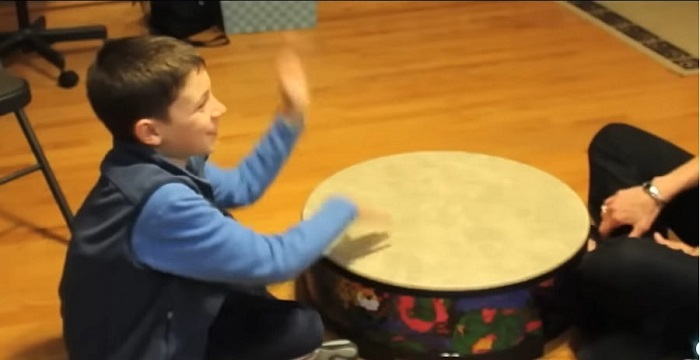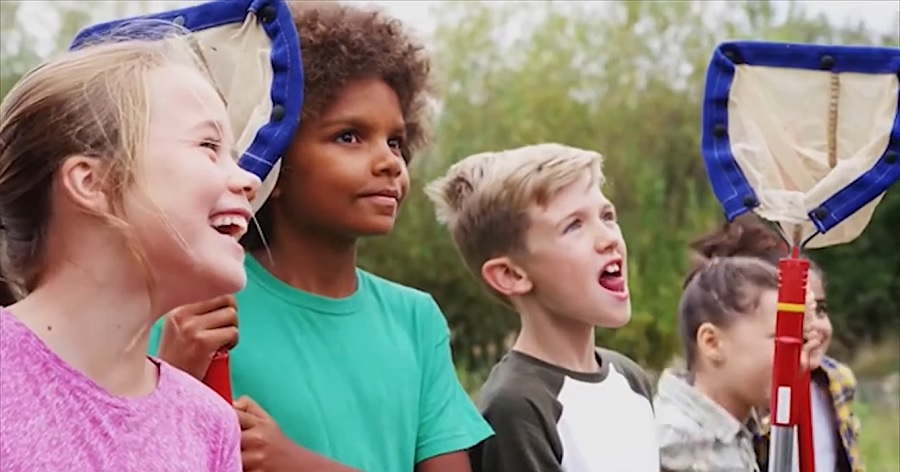
Imagine a life without fun? A tough call, isn't it? Life can be too tedious if fun and enjoyment isn't a part of it. However, most of the times, this is forgotten by parents, teachers and caregivers of autistic children. They are so much so engaged in making the life of the autistic child a structured one that they overlook one basic fact—he is a child after all. Agreed, activities for autistic children need to be educational, but not without the element of fun. Because if the fun is missing from the activity, it’ll just be a source of frustration for the kids and they might actually withdraw themselves from the scene. And while doing so, the benefits that the kids would have reaped from them will also go down in the dump. But autistic children don’t exactly know how to pick the activities that’ll interest them, it’s only after they indulge in some that they decide how much they’re engaged by them and whether they’ll prefer to play in future or not. Therefore, it’s up to you, as parents, to introduce your kids to a bunch of activities on a trial basis to see which one they end up adoring the most. And once they develop a liking towards an activity, they won’t shy away from playing it in future. Below have been mentioned some activities that are not only fun but also cover up for imparting physical skills such as hand eye coordination and dexterity along with other social skills.

Image Credit: https://www.youtube.com/watch?v=GW-kALtsbiQ
Activities for Autistic Children
Singing/ Playing Musical Instrument
Singing is a great deal of fun for autistic children as it provides them with loads of benefits. For autistic children who’re non-verbal, they can hum, make sounds, or play musical instruments such as tambourines, whistles, drums, or small keyboards. Playing new sounds or repeating sounds over and over again will help stimulate their sensory nerves. Mimicking each other’s musical notes or sounds can further encourage interaction. Experiment with different types of sounds or notes to find the ones which your child enjoys the most.
Guessing Game
It’s another fun activity that will help foster sensory development in your child. Put a blindfold over your kid’s eyes and hand him/her a basic object that you know your child sees on a daily basis or makes use of. Now ask him/her to feel the object and describe it to you. If your child is non-verbal, take the object out of his/her hands and place it somewhere in the house. Ask your child to locate that object and give a nice reward say a chocolate or candy if he/she succeeds.
Simple Board Games
Board games just never fail to fascinate and engage a young child. And because of their predictability and routine game play, autistic children don’t find them as difficult as they may find some of the other games, and rather enjoy playing them. Try beginning with the simplest of board games and gradually increase the difficulty as the child gets older and has learnt well to work with the rules of the game. It’s important that during the play you encourage your child to take turns and that you don’t make a big deal out of winning or losing, else they might attach negative emotions with the game and refuse to play in future.
Painting
This particular activity is sure to fascinate and hold their attention for as long as they paint. On a decent sized piece of paper placed on the flat surface of the table or ground, you can either ask them to paint whatever they want or can have them follow what you draw. Idea can be anything: hand painting – ask them to paint their hand and then print it on the piece of paper, face drawing – ask them to make a face you are making, or just plain simple doodling. This would improve the dexterity in their hands, thus promoting sensory development.
Organized Sports
There’s absolutely no reason why autistic children shouldn’t play organized sports; they enjoy them as much as other children of their age. However, try and make sure that the games that they partake in doesn't put too much pressure on sensory stimulation and does not require too many of equipments to be handled. Also, make sure that you keep the rules simple for them. Sports like golf or baseball are good activities for autistic kids, whereas sports such as soccer may not prove to be that fun or engaging for them as one would have hoped.
Movement Activities
Hand eye coordination doesn’t come from just sitting around; it comes from physical movement and partaking in activities or sports that demand physical movement of parts of the body. And because we’ve already covered sports, we’ll be moving on to fun arts like having a dance party or a puppet show. Set up the music system, load it up with your or your child’s favorite songs, and go berserk. Let your child dance freestyle and you too do the same. It’ll help your child learn rhythm and develop physical coordination. Playing with sock bunnies or soft toy puppets can help impart social skills to your child.
Try out these activities for autistic children to see which one(s) they like. Have them participate in these activities as often as they can with you in them too, for support and a little bonding time with your little ones. Happy playing!
 Activities For Teens: Fun And Productive Ways To Keep Your Teenager Busy In Summers
Activities For Teens: Fun And Productive Ways To Keep Your Teenager Busy In Summers Teaching Children Social Skills
Teaching Children Social Skills Aggressive Behavior in Children
Aggressive Behavior in Children